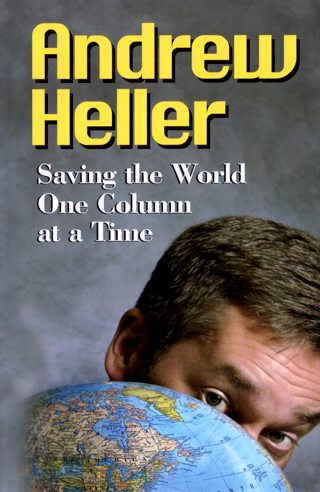 By Steve Murch
By Steve Murch
How many times have you heard someone who had invented something or developed something say “We want to change the world” when asked about their invention or development?
I don’t know if those people really believe they are trying to change the world or just finding a way that makes them lots of money and give them brand recognition. It  just seems to me those people play fast and loose with the definition of changing the world. Maybe they are blinded by their ambition or simply don’t know what change they are talking about.
just seems to me those people play fast and loose with the definition of changing the world. Maybe they are blinded by their ambition or simply don’t know what change they are talking about.
Facebook is an easy target when it comes to an example of overreach, but I’m going to use it anyway. Yes, it has made it easier for people to reconnect with old friends, loves, family, etc. It has provided a new way for businesses to reach and interact with customers. And it has become an easy way for people to spew hate, manipulate others, and generally create ill will as much as the goodwill that has been created.
The company definitely has changed the world. Its changes are left to the interpretations of the individual experiences of its users as to whether or not they have made the world a better place.
But, how much of the world needs to be changed? And who gets to decide what parts of the world need to be changed and what means are to be used? I’m not talking about removing hate, bias etc., that should go without mention. I’m talking about the things that we develop or build.
Let’s use dams as an example.
For years, dams were installed all over the country for a number of reasons – electricity, create easier to access water sources (man-made lakes are easier to access than a moving river), and divert water to name a few. But now, dams are being torn out in some places as the viability of those particular dams is being reassessed.
Those particular dams served a purpose but now are deemed obsolete or impractical. Does that mean that in 20 years Facebook will be obsolete? If it does become obsolete, it likely will be because of something different or better (or legislation) makes it so. And the creators of Facebook’s replacement might tell us they are trying to change the world.
There are still places on this earth that have little contact with the outside world. The people who live in those places know nothing of technology or modern science. But we should ask ourselves if that means we need to change their world. There are times when less is more and who are we to judge if their world needs changing.
What happens when we push too hard and too fast? Well, for starters, a particular society loses some, if not all, of its identity. It loses its way of living and it loses its natural environment, all in the way of people trying to change the world.
Sometimes we get too far ahead of ourselves in the rush to make things easier and don’t see the whole picture. Easier doesn’t always mean better. That’s something we should keep in mind when someone tells us they are trying to make the world a better place.
Steve Murch is a former managing editor and award-winning columnist for The Alpena News. He’s a lifelong Michigan resident, a broken and defeated fan of the Detroit Lions and a forever optimistic fan of the Detroit Tigers. His column will appear most Thursdays.
Photo by Slava Bowman on Unsplash




Are they trying to change the world? Or, are they trying to control it?
Some things to me are a welcome change to the world. You can’t deny the internet, smartphones and the advance of technology have changed the world mostly for the good. Cancer research by some pretty smart researchers and doctors have definitely change the world for the good. Most of these people aren’t doing it for the recognition either. The world has changed so much in my lifetime for the good. I wouldn’t want to go backwards like are wonderful President is trying to do. Egotistical assholes like him are the ones you have to worry about.
The treatment of heart disease is the biggest change I’m thankful for. I Lost my Dad at 51 to a heart attack. I am now 80 and have known I have heart disease since my 30’s. Medicine, stents and surgery keep me ticking along and actually feeling great.